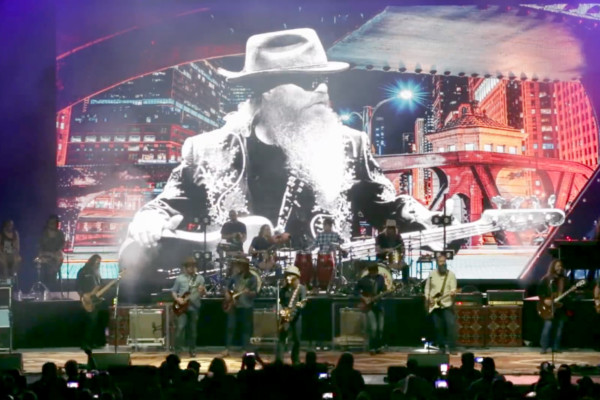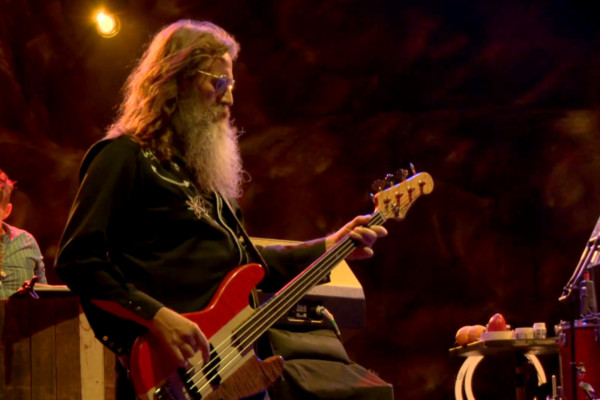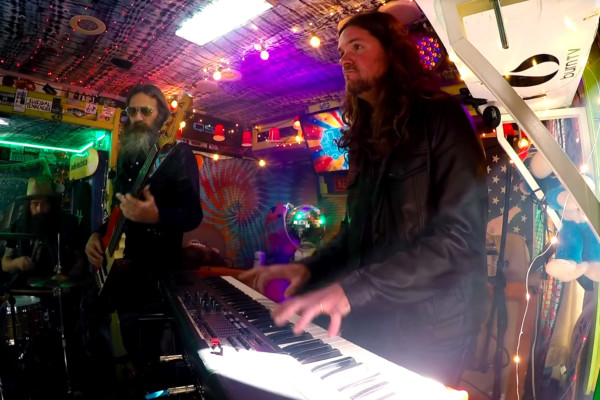Like An Arrow: An Interview with Richard Turner
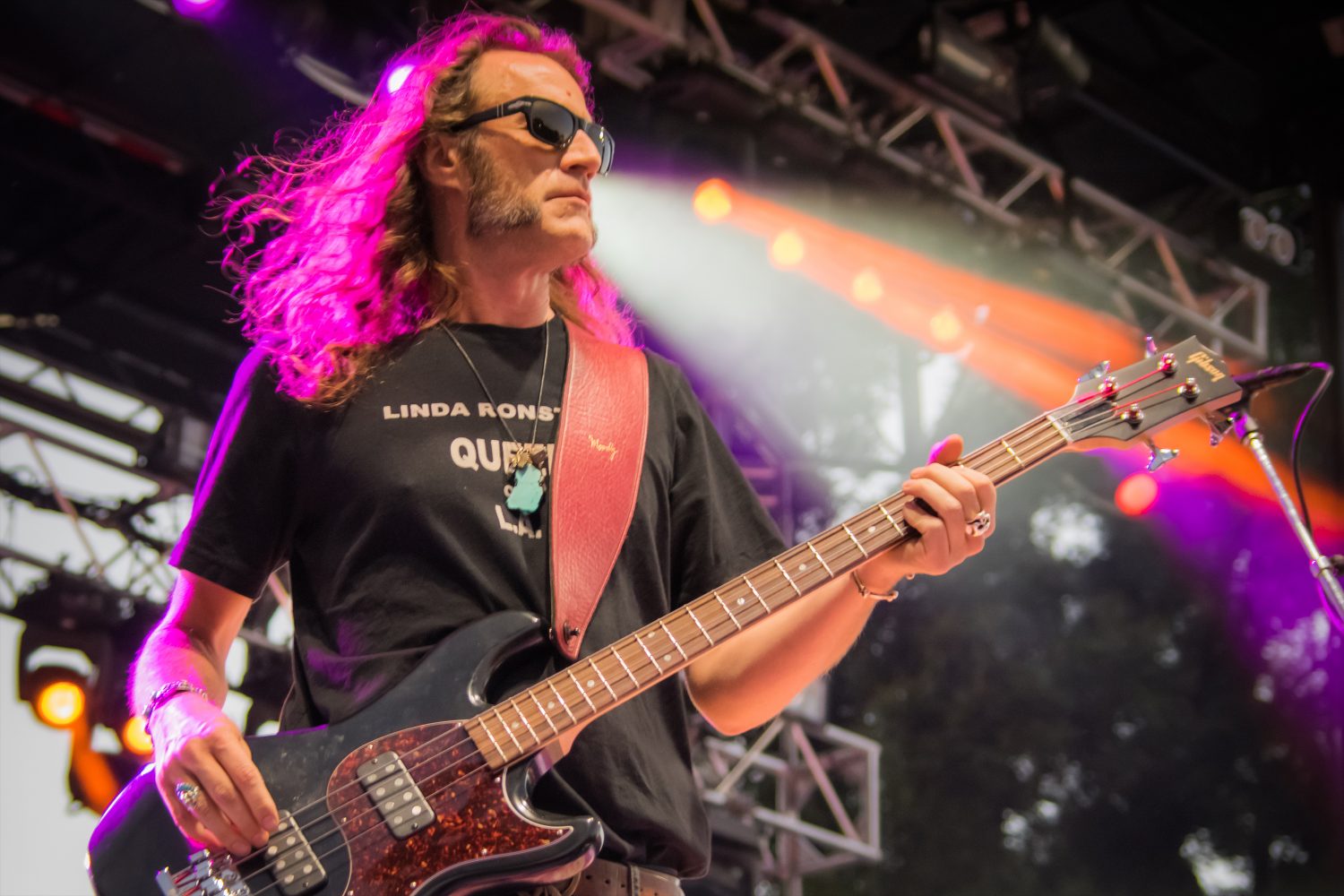
Blackberry Smoke is often hailed as the triumphant return of true Southern Rock, and maybe rightfully so. The five-piece, Atlanta-based band brings all the right flavors with authenticity and a penchant for writing memorable hooks, but they aren’t pigeonholed into one style. They have wide influences that seem to inform their powerful songs in unique ways. That idea is especially distilled into one member of the band: bassist Richard Turner.
Turner, along with his brother Blackberry Smoke drummer Brit, grew up with a wide-ranging and somewhat eclectic focus in music. From swing-era jazz to orchestral works to rock and metal, they’ve played it all. The bassist is a fan of Benny Goodman, but also opened up for Slayer and Metallica in years past. He’s a fan of Esperanza Spalding and Steve Harris alike. Turner says this openness helps to keep music fresh and exciting, and it shows in his performance.
Blackberry Smoke’s latest album, Like An Arrow, comes out October 14th, delivering a dozen killer tracks. Turner’s bass is prominent but only in a supporting fashion with a beefy tone that fellow bassists would kill for.
We caught up with Turner in between gigs as Blackberry Smoke was wrapping up a tour with Gov’t Mule. He filled us in on his musical background, the new album, his favorite DI, and more while dropping great advice in between.
Are you a road dog? Do you love the travel aspect of touring?
Yeah, my dad was an Air Force colonel and I thought that everybody moved every two years. It was a big let down when my dad retired and we just stayed in the same place.
How did you get into music?
My dad was first and foremost a pilot in the Air Force, but he also played the saxophone through high school and college. He was in a bunch of big bands along the lines of Benny Goodman, who was a big hero of his. His sister married a cat named Ben Stabler, who was the director for the Holiday on Ice orchestra. I got to watch him conduct the group and coordinate with all the flips and tricks on the ice. I thought, “Man, this is some timing genius.”
Once I got into school I picked up a clarinet and played it through elementary school and middle school. I didn’t want to play it in high school because it was way too geeky and I was playing soccer and cross country and all this other stuff. I went away from the orchestra band thing and after a while decided I wanted to play the bass. I saw one of the 8th grade bands do a performance of “Stairway to Heaven” and I thought I was going to have a heart attack. I told my parents, “I want a bass for Christmas.” My parents wanted to get me a guitar because you can’t sit around the campfire and sing songs with a bass. Of course I didn’t want to play the stuff they wanted to sing along to. [laughs] I woke up Christmas morning and there was a guitar under the tree. I was so let down. I ended up trading it in for a BMX bicycle and did real well in semi-pro BMX. Eventually I traded that bicycle to someone else for money to buy myself a bass.
By the time I was 15 I was playing the bass in high school bands. Later down the road, my brother and I went to see Cheap Trick at The Fox in Atlanta. I think he was working for Atlanta Pro Percussion at the time and wrangled backstage passes for us. We were in the back annals of the theater when out pops Robin Zander in a towel with two naked girls under each arm. My brother and I looked at each other and said, “This is definitely what we want to do with our lives.” [laughs]
Did you play with a lot of different bands growing up?
Not really. My brother and I started a band called Nihilist. There’s a band called Nihilist from Europe, but we were the Nihilist from Atlanta. We did the support slots for Metallica, Voivod, Slayer, Testament… You name it, if they came through the Southeast, we were the local opener. We did that band for 13 years. It seemed like the shows were getting really, really violent and I was getting over seeing people bloodied, especially the chicks. We played in Piedmont Park one time and there were a lot of broken bottle slashings in the pit, and I thought, “This is not fun anymore.” We just decided to stop doing it.
At that time, I lived in a rehearsal facility, like a lot of people do. You get a rehearsal facility, you get thrown out by your girlfriend, so you end up living there. [laughs] But I got to hear so much. They had several huge rehearsal rooms that groups like the Black Crowes or Aerosmith or Smashing Pumpkins or whatever would come in to hone their songs before recording or touring. I got to hear all sorts of bands and analyze them. Any little nitpick-y thing I could do I would tear the bands apart, but at the same time I’d see what parts of the bands were great.
After all that, I’d answer ads looking for bass players and played in all sorts of genres.
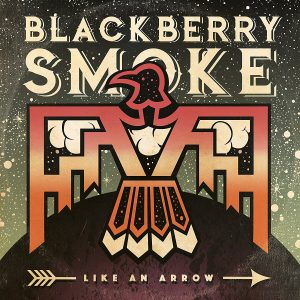
This new album is only about a year after your last album. That’s pretty quick, isn’t it?
Yeah, and it would have been just a year or less because we cut it last February. We had done some work with Bob Weir and were trying to get that pushed through legal so we could release a DVD of Blackberry Smoke and Bob Weir doing our thing together. Bobby is just slow with that kind of stuff. He said, “Yeah, great, send it over!” Then you send it over and it sits on his desk forever. He’ll say, “Yeah, I have it right here.” It’s like, just sign it – it was your idea in the first place! [laughs] It’s funny. You just have to be patient. He’s a master.
I wanted to ask you about that project, because there are a couple clips online and it’s pretty badass stuff.
That’s good. I haven’t seen it. I rarely watch anything we have.
Is that because you don’t like to watch yourself or you just don’t have time?
I maybe think that it’s the past and I want to keep moving forwards. Sometimes I think I might hone in on something that has no meaning, but it might have meaning with me and then it will clip me in a show. I might go, “Oh, the cuff on my pants in the video was bothering me. I wonder if the cuff on my pants is looking stupid tonight.” And then I forget where I’m at and blow a note or an intro or something. What are you going to do? Fix the stupid thing? Just be natural and have a good time. The best thing that emotes success in this business is that you look like you’re having a good time and enjoying yourself and being part of the celebration that someone spent $12.50 on a ticket for.
Just grin and get on with it. It is the greatest job in the world. I always dreamed about being an entertainer and playing on stage. Not like the lead dude or anything like that, but I just wanted to be a part of it. When you see sixty people playing in the orchestra like I did as a kid, you see how great it is. Most of the guys were jazz dudes doing what they did: smoking cigarettes, partying all night, and going to the next damn city. There’s not a lot of difference between genres.
Just going back to that idea for a second, it’s crazy that your musical influences went from Benny Goodman to Holiday on Ice to metal. Is variety in music important to you?
Yeah, and I think it came with traveling so much as an Air Force brat. There’s a song called “Yellow Bird” and anytime my parents would take me somewhere that had a live band I would request it. I developed an appreciation for lots of different cultures and lots of different music. I love the diversity that comes along with it. Whether I play in those influences or not, I don’t have any walls. It’s most noticeable when we’re working with a producer.
Usually we are our own best producer, but sometimes we want to work with other people just to see what bend they could put on something. That’s when they come in and say “cut these two measures short” or “change the beat here” or “let’s put a shaker in here.” I’ve seen some people that wouldn’t accept input from a producer. They don’t realized the idea of why you hired a producer, and you pretty much waste upwards of $80,000.
Anyway, tonight I was just listening to Duke Ellington’s “Caravan”. So whatever was on when I searched for “Caravan”, it was a stream of different versions of the same song. I’d get a really old one, a really quick one, or a really slow one. People will hardball you and say, “You’re playing it wrong,” but it’s like, “I’m playing it my way. [Expletive] off!” It’s an interpretation and that’s what music should be.
People will say that there’s a right way and a wrong way, and they probably do not understand that it’s your way. It’s any way you want it to be. To be one-sided would be unaccepting of other people. I want to hear other people’s music. I want to hear other cultures’ music.
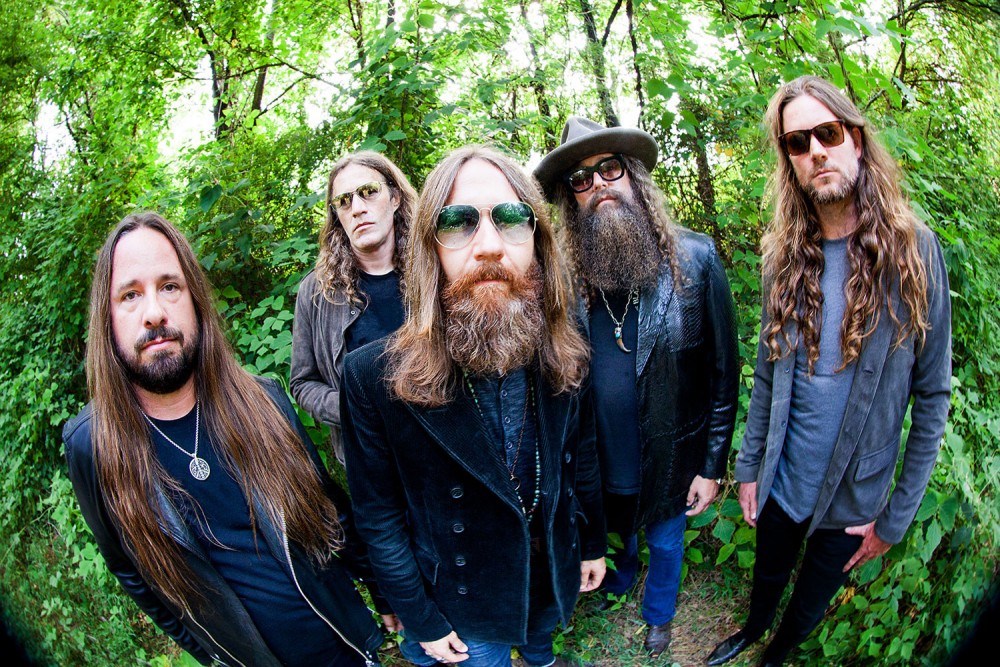
How did Like An Arrow come about?
At soundcheck everyday there is a doodling period, and that turns out to be Charlie’s latest riff idea. It may morph in the next few days or months that we doodle with it. There will be several other doodles going on, too. Then someone might throw a little key change in somewhere so it becomes like a jazz odyssey, if you will. Over the course of time we might record some of these things, or we might just remember them. That’s an important aspect: we want something memorable that you can enjoy that’s not too basic and not too over the top.
Charlie has to sing it, so he has to emote it. Anyone can write, but he does a lot of it. I wrote a [expletive] load in the metal band, but my stuff is all about Dante’s Inferno and stuff like that. [laughs] So it doesn’t really work as well in Blackberry Smoke.
We work in a modern, fast approach. There will be times that we’re cutting all this music that everyone’s got the opportunity to throw their own riff in. Like we’ve done a lot, we might slash a song. We might even put a song on a record and then rewrite it and put it on another record because we’re not totally satisfied with it. We did that with “Sunrise in Texas”.
So it’s all organic?
Exactly! That’s a word I love to use all the time. You know, people don’t enjoy life enough because they’re too rigid. Music is this vibrating bits of metal and wood. Your ears are hearing it and your body is feeling it. This rigidity of playing the same song the same way every night will bore everyone. The first person you’ll bore is me. The second person you’ll bore is the person who went to 70 of your shows last year. They didn’t go because they wanted to hear the same song 70 times. They went because they heard a different set or they heard our medley change gears from night to night. We might put “I Miss You Rider” in a little break, or we might put “When The Levee Breaks” in the same spot the next night.
As for the recording session, we always want to work with Brendan O’Brien. He’s from the Atlanta area, and we’ve all known him since he was 15 years old and killing it on the bar scene. He’s a phenomenal guitar player. We got our rehearsal space in Atlanta and just played the piss out of the songs until we were satisfied we could play them backwards, at any speed, in any key, or whatever we wanted. We did three or four songs a day, completing them except for vocals. That blew Brendan’s mind, but we’re used to doing three songs a day. We cracked the record out with a day left over with nothing to do but listen over again.
Then we would sleep on it for a month before listening to it again. Then we’d take it to L.A. to a really high end vocal studio and fly whoever was going to sing on the track out there. We basically come to the table and cut it together all in the same room. It’s very live.
I really love your tone on the album. How do you get that in the studio?
I play a Joe Hamilton bass that’s fitted with Curtis Novax P/J pickups. It’s got a Telecaster body with a red, white and blue finish. It’s bulletproof. In the studio, the only real thing I think you’re hearing is the Avalon U5. I used to be a big Countryman player and had two of them in my rack back in the day. It was years ago when the Avalon came out, I was in the studio and the engineer told me to plug in at the console. I looked at the face of it and said, “Cool, it’s got this tone and that notch-y kind of thing.” I started messing with it and said, “Oh God! That’s Steve Harris’s tone!” Then I played some more and wanted one real bad. I eventually got one through eBay from a studio in California. After that I’d just take it to every studio I went to. My rack consisted of just the U5 and a tuner. The U5 is where it’s at.

